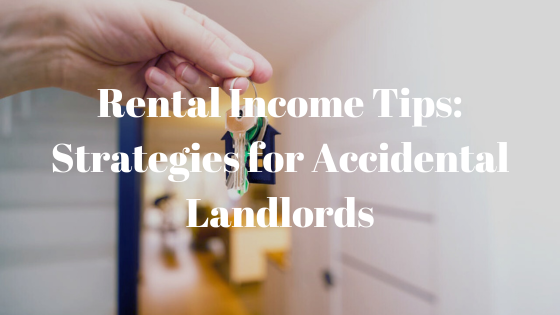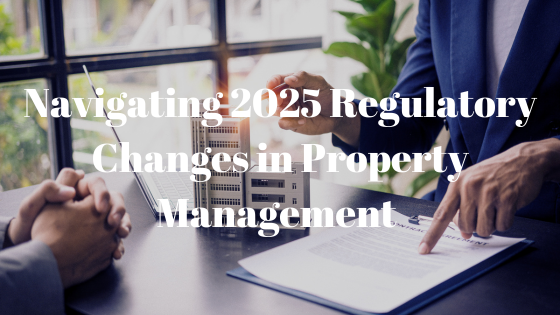How Often Should You Inspect Your Charlotte Rental Property?
When living conditions are good, it’s no doubt that your tenant will enjoy their new home. And, a happy tenant means higher tenant retention!
But, how do you ensure this? Simple, by regularly inspecting your Charlotte rental property.
As a landlord, it’s your job to conduct a rental property inspection and check on the property. This helps you ensure your tenants are abiding by lease terms and fulfilling their duties. If not done often enough, you may miss some potentially serious issues.
Regular inspections provide a myriad of benefits for both you and your renter. To a renter, the inspections:
- Help them become aware of any safety issues. For instance, inadvertently blocking vents.
- Provide them with an opportunity to meet with the landlord face to face and forge a relationship.
- Provide them with a chance to bring up any maintenance questions or issues.
From a landlord’s perspective, inspections allow them to:
- Ensure there is no unreported property damage.
- Ensure the property is not being used for any criminal activity.
- Check that the tenant is not subletting the property.
- Carry out minor repairs before they become major.
Evidently, regular inspections of a rental property can benefit both the tenant and landlord.
With that in mind, then how often should landlords inspect their Charlotte rental properties? Below are some crucial times during a tenancy that you should make sure to carry out a rental inspection.
The Best Times to Conduct Rental Property Inspections
1. When Your Tenant is First Moving In
A move-in inspection helps document a property’s condition. This way, you’ll be able to determine excessive property damage come to the end of the lease term. As a landlord, you should also bring a safety inspection checklist, to help make your tenants feel safer upon moving in.
In some states, landlords are required to provide move-in inspection checklists detailing a rental unit’s condition. In North Carolina, however, this isn’t required.
During the inspection, make sure to document everything in writing. The more you write, the better off you’ll be.
You could also include pictures and videos as well. Your phone could help you in this regard. If you find something that seems broken, have it fixed as soon as possible. You wouldn’t want your tenant to say “that was broken when I moved in!” when they move out.
It’s always crucial to see that everything is in a proper working condition prior to a tenant moving in.
2. When Your Renter is Moving Out
A move-out inspection is similar to a move-in inspection. Its purpose is to check for possible property damage resulting from a tenant’s carelessness or negligence.
Common examples of property damage in Charlotte include:
- Grime-coated bathtub and toilet
- Broken dryer or washer
- Burn marks on wood floors
- Missing or broken blinds
- Pet damage to carpets and curtains
As a landlord, if a tenant does any of these things, you have a right to make the appropriate security deposit deductions. However, pay attention not to keep a renter’s deposit to cover for damage resulting from normal wear and tear.
Common examples of normal wear and tear include:
- Stains on old porcelain fixtures
- Mineral deposits in the toilets
- Worn out thermostat on the dryer
- Minor marks on or nicks in floors
- Warped cabinet doors
These are your responsibility. They occur naturally as the property ages.
3. When a Tenant Does Not Pay Rent
As a landlord, it’s absolutely crucial to collect your rent payments on time every month. This will ensure that your rental property business is successful. To minimize rent-related issues, make sure that your renter understands rent collection procedures from the very beginning.
If you notice your renter has missed their rent payment, stop by to see what’s going on; landlords can do random inspections. Being proactive may help prevent the issue from being a bigger one.
Next, issue them with a proper notice. In North Carolina, you must give your renter a ten-day “quit or pay” notice. In other words, the notice gives the renter ten days to either pay due rent or leave.
If the tenant fails to pay the rent within ten days, you can file for their eviction in court on the 11 th day.
4. When Checking on Maintenance Needs
It is always a good idea to check your rental property regularly for small maintenance and repair issues. Sometimes, your tenants may not even be aware there is an issue at all. Other times, they may know them but may fail to inform you about them on time.
Either way, rental home inspections, and regular property maintenance can guarantee you avoid large repair costs for neglected repairs. In addition, you’ll help keep your Charlotte tenants comfortable and satisfied.
The following are some maintenance tasks that you should perform on a regular basis.
- Cleaning the gutters. Clogged gutters and downspouts can wreak havoc on your rental property. They can crack foundations, shift walls, rotting wood, flood basements and erode landscape.
- Flushing your water heater. Experts recommend you do this at least once a year. This helps prevent the formation of too much sediment, which can clog the drain valve or reduce your water heater’s efficiency.
- Changing the filters in your forced air systems. Dirty filters can cause your systems to malfunction or increase your utility bill.
- Testing all smoke and carbon monoxide detectors regularly . These devices save lives. As such, ensure they are in good working order.
- Checking for water damage and leaks. Do this especially after humid days when pipes tend to sweat after snow and ice have begun to melt, or after a heavy rainstorm.
- Exterminating monthly. It doesn’t matter how clean your tenant is – bugs can hitchhike in via their shoes, pets and even groceries.
5. When Checking for Unauthorized Tenants
Sometimes you may have reasons to believe your tenants are harboring unauthorized tenants. This is especially common when a family member overstays at your property or when your tenant begins to house a girlfriend/boyfriend.
Unauthorized renters or occupants can present many problems to you. They can cause extra wear and tear on the rental or just cause extra damage.
These are all best times to inspect your Charlotte rental property. However, make sure not to overdo them as this can jeopardize your relationship with your tenant. Also, make sure to serve them proper landlord inspection notice, usually 24 or 48 hours in advance.











